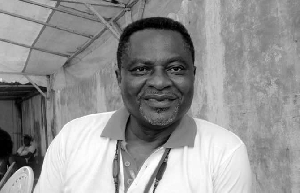GSC Energy will start work on a 500MW solar photovoltaic park costing about $2.2bn in Cameroon in the second half of this year, founder and chairman Steven Moti said on Monday.
GSC Energy heads a consortium that includes Austria’s Sun Value, and two other South African firms, Tricom Structures and Conco, a subsidiary of the JSE-listed Consolidated Infrastructure Group.
The project would create 3,000-4,000 direct and indirect jobs in SA and Cameroon, Mr Moti said.
Some of the materials would be sourced from China and some from SA. Mr Moti expected about 20%-30% of the content of this project to come from SA.
Renewable energy projects around Africa have been gaining momentum in the past few years, partly because they attract more developmental financing than coal-fired energy projects.
Coal-fired power contributes to global warming.
Cameroon, with a population of about 20-million, remains largely without electricity in rural areas.
Its government has a Power Sector Development Plan to 2030, which aims to boost total access to electricity to 75% from about 57%.
It also intends to increase and diversify its power generation as shortages have been identified as a constraint on economic growth.
The country has about 1,500MW of installed power capacity, but most of this is generated by hydropower, which is vulnerable to drought.
SA has also been increasing its contribution to the electricity grid from solar photovoltaic through the renewable energy independent producers programme.
The government has signed purchase agreements for 1,450MW of solar photovoltaic, about 1,000MW of which was feeding into the grid by the end of last year. The target is 8,400MW by 2030.
According to a CSIR study late last year, SA’s first 1,600MW of wind and solar photovoltaic projects feeding into the grid had saved the country R3.69bn in diesel and coal fuel costs, as well as another R1.6bn in the form of unserved energy, or demand that it would otherwise have been unable to meet.
GSC Energy said in November 2013 it had signed a memorandum of understanding with the government of Cameroon for the solar photovoltaic project. It has spent the past 14 months completing technical and financial feasibility studies.
Mr Moti said the project was fully funded by a syndicate of banks.
The solar park would boost Cameroon’s electricity generation by about 50%. It would provide enough power for 50,000 homes and would offset about 70,000 metric tonnes of carbon dioxide a year, equivalent to taking 8,000 cars off the road annually.
Mr Moti said the GSC Energy solar park would be situated mainly in Cameroon’s northern and extreme northern provinces.
Asked about the logistical difficulties in installing equipment in a relatively remote and undeveloped area, he said that since GSC Energy started to look at the project in late 2011 the area’s road infrastructure had improved considerably, though it would still be challenging.
Infos Business of Tuesday, 10 February 2015
Source: bdlive.co.za













